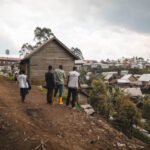The electoral process in Nigeria still excludes significant proportions of the country’s population, including women, youths and people with disabilities (PWDs), a study by the Policy and Legal Advocacy Centre (PLAC) has found.
The study, Report on Inclusivity in Nigeria’s Elections, noted that the Nigerian government is not doing enough in the area of collaboration with relevant civil society organisations (CSOs) to engender political inclusivity.
With support from the MacArthur Foundation, the study was carried out to determine to what extent electoral participation varies across marginalised groups.
Development Diaries understands that PLAC, a prominent think tank in Nigeria, adopted a multi-stage research methodology with quantitative technique for the study.
Findings from the study show that 49 percent of respondents said that the country pays little attention to political inclusivity.
The study also revealed that there is a dearth of advocacy by core Nigerian CSOs for electoral inclusion at the grassroots.
According to the report, majority of respondents said that the youth is the most marginalised group in the electoral process alongside PWDs, internally displaced persons and refugees.
‘Most of the efforts of government in consolidating an inclusive electioneering process are often thwarted by poor implementation framework and non-criminalisation of violators of the electoral act’, the report read.
‘The results show that persons who administer elections significantly disenfranchise the communities of PWDs and IDPs and they are not subjected to any punitive sanction in that regard.
‘One of the greatest concerns of the community of marginalised groups, the study shows, is their non-inclusion in legislative institutions and framework.
‘There is widespread disaffection by respondents about the poor participation of the community of PWDs or IDPs in the legislative processes such as lawmaking’.
According to the study, poor implementation of the provisions of the disability act, electoral violence and poor preparedness by electoral management body constitutes the most significant hindrance to inclusive elections in the West African country.
The study noted that adopting institutional legislation such as the electoral act, technological instruments such as e-voting and assistive devices for PWDs would promote inclusiveness and democratic elections in Nigeria.
Chief among the study’s recommendations is the strong need for government to partner with CSOs to promote inclusive political participation and representation.
Additional recommendations from the study called for more support for special measures, legal and policy framework to include women and PWDs in political parties and the Nigerian legislature.
Source: PLAC
Photo source: Tony Blair Institute for Global Change




